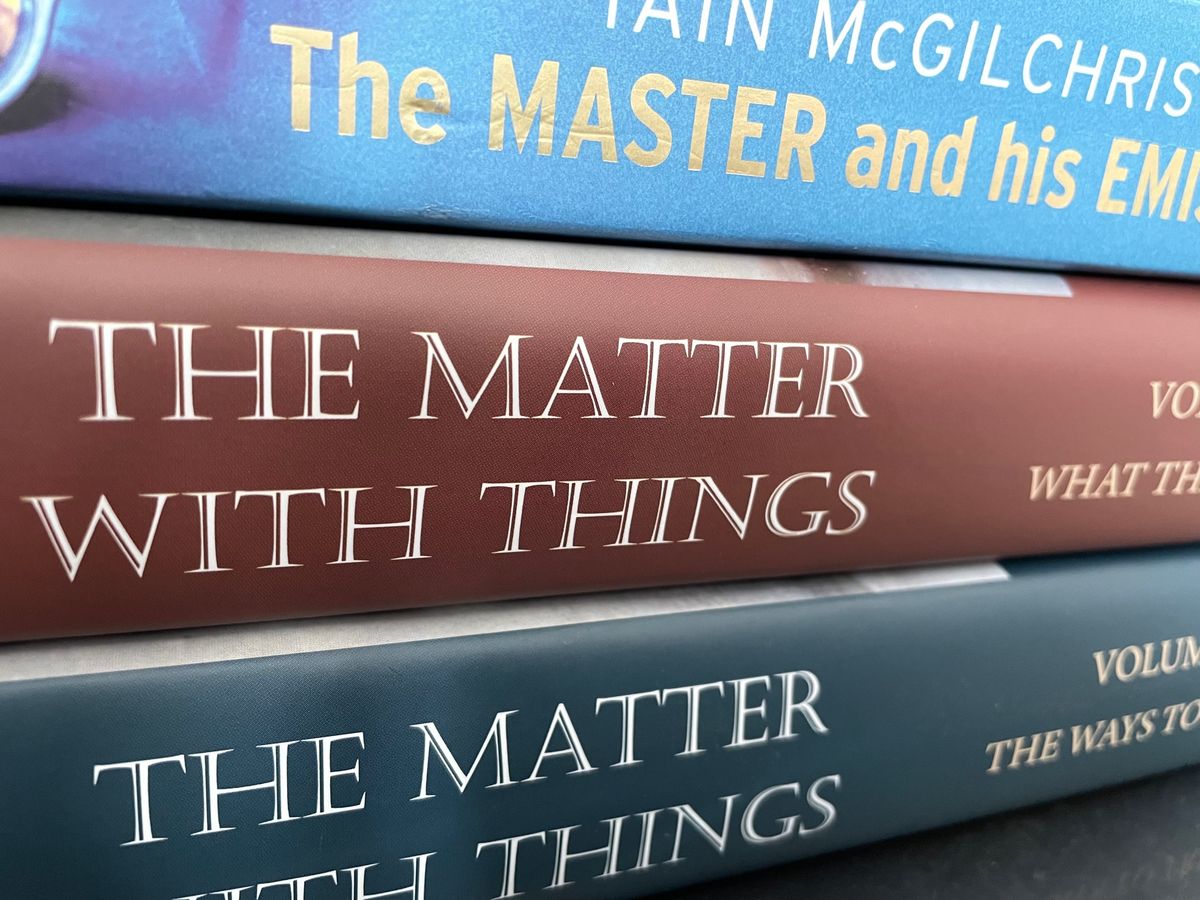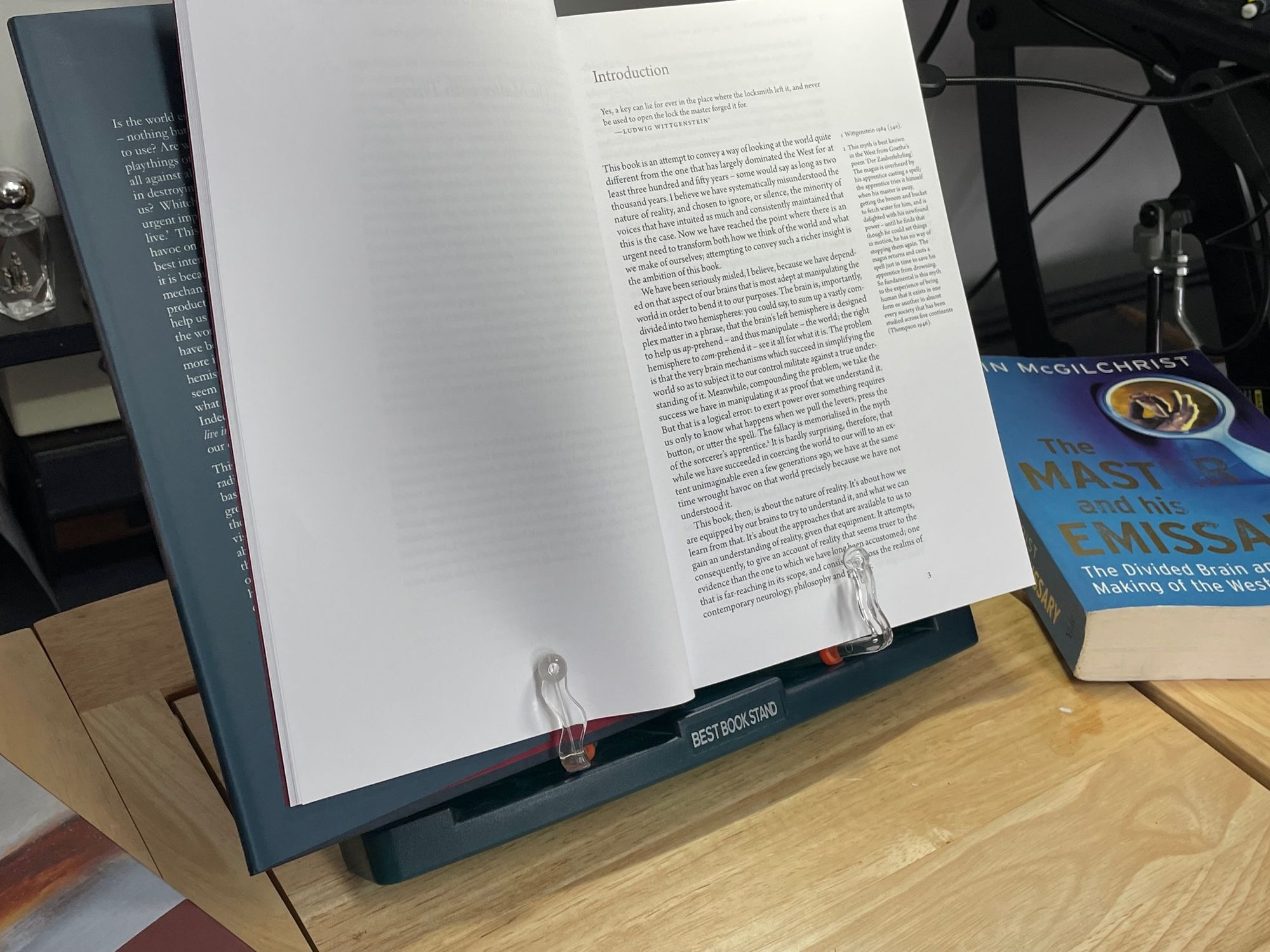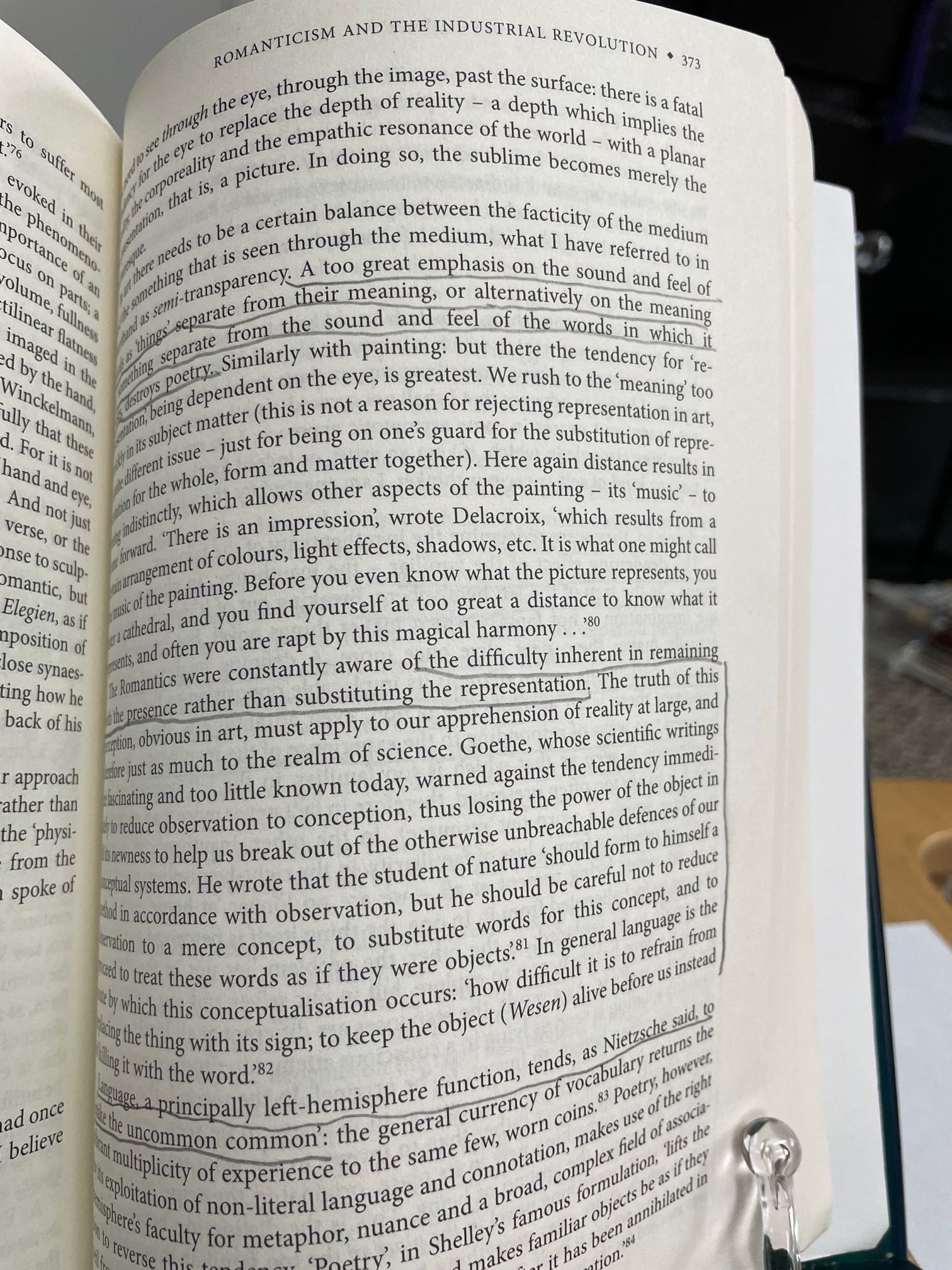Starting the Trip: The Matter with Things: Our Brains, Our Delusions, and the Unmaking of the World
At $150, I'm trusting the trip will be worth it.

No book’s potential has ever riveted me like this one.
My wife gave it to me for Christmas. On the 26th, I woke up excited: I was fatigued from the previous day’s bustle, but this book was waiting for me in my study. I lit the “smells like an old bookstore” candle that my son bought me and hoisted the books to my desk.

And I mean “hoisted.” They’re heavy. Like, unbelievably heavy, given their size. They aren’t huge, but they’re dense.
There’s a reason they’re so dense.
The Master and His Emissary Was a Mere Warmup
McGilchrist published The Master and His Emissary in 2009. It was a big hit, as far as academic books go. It sold 150,000 copies, which again, for academic books, is huge.
I found it groundbreaking and paradigm-shifting, but at the same time, it dovetailed almost perfectly with my Existence Strikes Back Project. I told one of my sons, “The Master is everything I’ve been trying to articulate, but a thousand times more, including science” (something you won’t see often at the ESB Project).
When I learned earlier this year that McGilchrist had published a work that dwarfs The Master, I was stunned.
I went to buy it and saw the whopping $150 price tag. Combined with my self-imposed moratorium on buying books (my shelf whimpers; my reading backlog sighs), I couldn’t do it.
These Volumes are Beautiful
Why so expensive?
Despite the commercial success of The Master, McGilchrist had trouble finding a publisher for The Matter with Things. Penguin (the brutes) wanted him to cut it in half and offered to provide an editor to do the butchering.
McGilchrist declined. He engaged small Perspectiva Press and helped with the mundane chores, like page layout and typography. He oversaw production of an extremely high-end product. Expensive, but high-end.
Do you “pre-read” your books so the spines don’t crack? (Youtube link to "pre-reading" books)
That’s the first thing I did with these volumes, but it wasn’t necessary. They opened smoothly, showing the stiffness of a toddler’s knees.
Do you, like Nassim Taleb and me, love footnotes? Do you, like me, hate it when the footnotes are at the back of the book? It’s such a stupid thing to do, I wonder how it ever became “a thing” in publishing. It’s much better to put them at the bottom of the page for easy reference.
Or best of all: put them in the righthand margin, which is what McGilchrist has done here: mere citations or further explanations. It doesn’t matter. I can shift my eyes to the right and read them.
The pages are smooth and thick (no doubt contributing mightily to the book’s weight), almost fun to touch.
In short, McGilchrist and Perspectiva have put together a reading experience.

These Two Volumes Promise to be a Journey
It’s an experience that won’t quickly be finished.
At 1,500 pages, I’m not sure I’ve ever started something so daunting and promising at the same time. I think Caesar’s Sports Book has my under-over at “two”: the number of years it’ll take me to finish the book. I’m betting heavily on the “over.”
But that’s alright.
McGilchrist himself says it’s alright. In fact, he says it’s not necessary to read the whole thing. He hopes the reader picks it up and puts it down in “enjoyable stages.” He hopes the reader reads the entire thing, but
Do so in a spirit of intellectual friendship, not as another challenge to fit in to a busy life. (A Note to the Reader, vol. I, p. xvii)
That’s perfect. I don’t need another challenge.
But I can use the spirit of intellectual friendship, so I’m accepting McGilchrist’s offer.
I Can’t Bring Myself to Write in These Books
Here’s my dilemma: Do I write in these beautiful volumes?
I long ago made the decision to mark up my books, and I’ve never regretted it. I have hundreds of books with underlining and margin notes, all ready fodder to craft the stray essay or stimulate thought.

Alas, I can’t do it here.
These books are so handsome, it’d be an act of savagery. Heck, it’d be an act of sacrilege: a violation of the transcendental virtue of beauty.
I won’t do it.
But I will be taking notes. It will slow down my pace (you should definitely call Caesars and bet the house on “over two years”), but that’s alright.
The book, McGilchrist assures me, is a journey, and few journeys offer a straight road. A few detours, a few side trips, a few roadsides to stretch the legs and take pictures of the views.
They’re good things.
I’ll be Sending Postcards from the Journey
Along the way, I’m going to be texting those pictures of the views. I’ll be sending postcards.
Blog posts; newsletters, micro-essays; full-blown essays.
I hope to send them all.
You see, I’m inclined to agree with other McGilchrist enthusiasts: His is a Copernican revolution in metaphysics. He would disagree, pointing out that he’s merely resurrecting things that have been forgotten.
No matter.
What he is saying is important and, in this post-modern age when everything worthwhile has been forgotten (and shat upon), he needs help. He needs fans (heck, disciples) to spread the message to people who (understandably) don’t want to spend $150 and two years of their reading life on one author. Such a decision requires an act of faith.
McGilchrist is going to need popularizers and vulgarizers. I’m not popular, but I can be pretty vulgar.
Instead of marring those beautiful volumes with my scrawl, I’ll be marring my word processor with notes, extrapolations, newsletters, and essays. I’ll reproduce them here; I’ll mail them there.
They will be my postcards and texted pics of a journey that, I suspect, will be well worth the cost.




